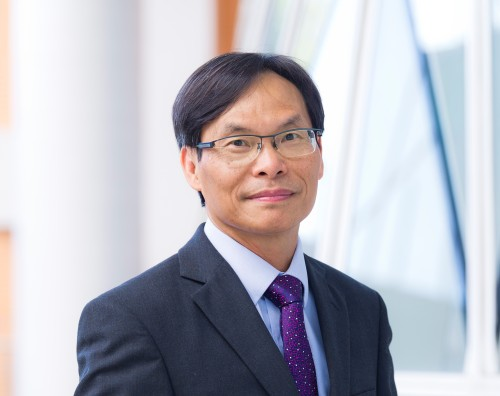天津市顶尖科学家工作室
Tianjin Top Scientist Studio
南开大学计算智能团队
Institute of Computational Intelligence
报告专家:Professor Sam KWONG Tak Wu
专家单位:Lingnan University
报告题目:
PartI: Deep Learning for Visual information processing
Part II: Introduction to the IEEE SMC Society
报告时间:2024年10月30日 10:00-12:00
报告地点:南开大学津南校区人工智能学院北楼(软件学院楼)212报告厅
报告摘要:
PartI: Deep Learning for Visual information
Abstract:
In this talk, I will explore the potential of artificial intelligence (AI) to address some of the most pressing social and environmental challenges facing our world today. With its ability to analyze vast amounts of data, identify patterns, and make predictions, AI has the potential to revolutionize fields such as healthcare, education, and climate science.
However, as AI becomes more powerful and ubiquitous, it also raises important ethical and social questions. How can we ensure that AI is used for the greater good, rather than contributing to inequality and injustice? How can we ensure that the benefits of AI are shared fairly across society, rather than concentrated among a small group of wealthy individuals and corporations?
In this talk, the speaker will delve into various questions about AI applications and their positive impact on society and the environment. The talk will draw on examples of specific AI applications that are already making a difference. For instance, underwater instance segmentation, is the process of detecting and segmenting objects in underwater images. This technology can potentially improve underwater exploration, marine conservation, and disaster response efforts.
Another example is image reconstruction based on compressive sensing. This technique allows for the reconstruction of high-quality images from a limited amount of data, which can be particularly useful in applications such as medical imaging or remote sensing. The third topic is the low night image enhancement, which is a technology that enhances images taken in low-light conditions. This can improve the accuracy and effectiveness of applications such as surveillance, transportation safety, and security.
By exploring these and other examples of AI applications, the talk aims to demonstrate the potential of AI to make a positive impact on society and the environment, and to inspire further innovation in
Ultimately, this talk will aim to inspire and empower attendees to think critically about the role of AI in shaping our future, and to explore ways in which they can harness this powerful technology to create a more just, equitable, and sustainable world.
Part II:Introduction to the IEEE SMC Society
As a Junior past president of the IEEE Systems, Man and Cybernetic Society :
Title: Expanding Horizons: Membership Promotion and Advancements in Systems, Man, and Cybernetics
Description:
Join us for an insightful talk led by the Junior Past President of the IEEE Systems, Man, and Cybernetics Society. This session will delve into the multifaceted world of IEEE and its pivotal role in advancing technology and fostering professional growth.
Our discussion will cover three main areas
Membership Promotion:
Discover the numerous benefits of IEEE membership, including access to cutting-edge research, professional networking opportunities, and career development resources.
Learn about the various membership grades and the pathways to elevate your professional standing within the IEEE community.
Explore initiatives aimed at attracting new members and retaining current ones, including student programs, industry partnerships, and special interest groups.
IEEE Structure:
Gain a comprehensive understanding of the IEEE organizational structure, from local chapters to global governance.
Understand the roles and responsibilities of different IEEE entities, such as technical societies, councils, and regions, and how they collaborate to drive innovation and knowledge dissemination.
Learn how you can get involved in IEEE activities at various levels, contributing to the community while advancing your career.
Promotion of Systems, Man, and Cybernetics:
Delve into the core domains of the Systems, Man, and Cybernetics Society, exploring the latest trends and breakthroughs in systems science, human-machine systems, and cybernetics.
Highlight key research areas and practical applications that are shaping the future of these fields, from autonomous systems and AI to human-centered design and cognitive computing.
Discuss strategies for promoting interdisciplinary collaboration and knowledge sharing among professionals and academics in these areas.
This talk will not only provide valuable insights into the IEEE and its offerings but also inspire you to actively participate in shaping the future of systems, man, and cybernetics. Whether you are a seasoned professional or a newcomer to the field, this session promises to equip you with the knowledge and motivation to leverage IEEE resources for your personal and professional growth.
报告人简介:
Professor KWONG Sam Tak Wu is the Associate Vice-President (Strategic Research), J.K. Lee Chair Professor of Computational Intelligence, the Dean of the School of Graduate Studies and the Acting Dean of the School of Data Science of Lingnan University. Professor Kwong is a distinguished scholar in evolutionary computation, artificial intelligence (AI) solutions, and image/video processing, with a strong record of scientific innovations and real-world impacts. Professor Kwong was listed as the World’s Top 2% Scientists by Stanford University since 2022 and one of the most highly cited researchers by Clarivate in 2022 and 2023. He has also been actively engaged in knowledge transfer between academia and industry. He was elevated to IEEE Fellow in 2014 for his contributions to optimization techniques in cybernetics and video coding. He was a Fellow of the Asia-Pacific Artificial Intelligence Association (AAIA) in 2022, and the President of the IEEE Systems, Man, and Cybernetics Society (SMCS) in 2021-23. He is a fellow of US National Academy of Inventors (NAI) and the Hong Kong Academy Awards of Engineering and Sciences (HKAES). Professor Kwong has a prolific publication record with over 350 journal articles, and 160 conference papers with an h-index of 84 based on Google Scholar. He is currently the associate editor of a number of leading IEEE transaction journals.
报告专家照片:
